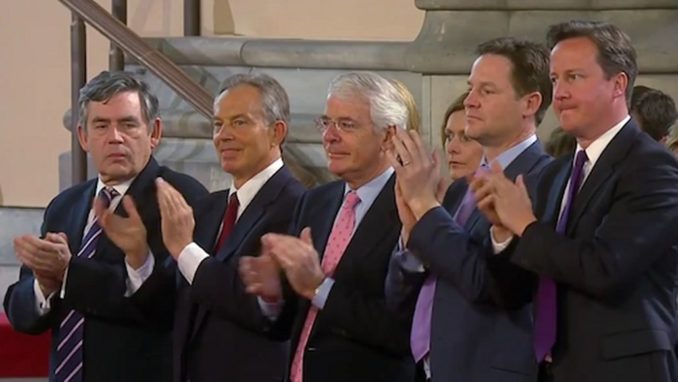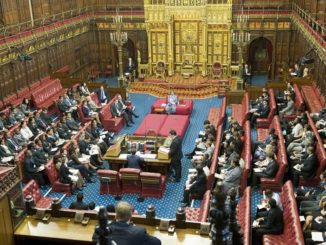
With news about a trannyfesto doing the rounds, political manifestos spring to mind. These are taken so seriously by our misguided political parties you could be forgiven for thinking they are like the Ten Commandments written on tablets of stone. Come to think of it, didn’t some halfwit try that already ?
There is allegedly a convention, I write allegedly because I can’t find it, that no government will repeal laws passed by a previous administration where said law was in their manifesto. I have serious problems with this on multiple grounds.
1. People don’t vote for s manifesto in a general election. It is is usually a vote against the government though there may be a few policies listed that would lose a Party votes. Usually they don’t include such policies except perhaps in Michael Foot’s longest suicide note in history.
2. No government may tie the hands of a subsequent government. This is sensible and is enacted in law, this is something I could find.
3. Why does no Party put repealing some of a previous Party’s legislation in their manifesto. It is as if they want to keep the pretence that manifestos are important when, as the Caledonian Cyclops proved in court, the promised policies are mere aspirations.
As an example, Maggie who must surely have been in favour of Grammar schools, closed more than any other minister; a policy begun under the Wilson administration which in its own manner closed more coal mines than anyone else.
All parties, once in government, insist that the electorate voted for all the contents of their manifesto. This is manifestly untrue. Forgetting the tribal votes for a moment it is obvious that the floating voters vote against a government or in favour of a charismatic leader. Satan Blair was one such charismatic leader in 1997 but he has fallen far since. He was up against John “Back to Basics” Major whose basics seemed to consist of discussing East African affairs with Edwina Currie and not much else.
If we find that people vote for a manifesto then surely people can vote against a manifesto. If we look back at 1983 we have the spectacle of Michael Foot with his manifesto, described at the time as the longest suicide note in history. We should have fond memories of this because present day Labour have gone much further. Back in 1983 this manifesto was seen as far too radical, especially in the area of Defence.
The rotund Boris in 2019 probably got a bit of the charismatic vote but I reckon he was elected because he promised to get Brexit done. Something he failed at spectacularly along with most, if not all, of the contents of his manifesto. The treasonous Theresa May had previously promised to get Brexit done but had set about doing exactly the opposite and Boris did much the same.
To return to what governments may or may not do. According to convention no government may hamstring a subsequent one by including words like “this Act may not be repealed” in any law. This again causes me to scratch my head because I cannot remember one example of a government repealing any laws, the House of Lords presently busies itself with trying to ensure no EU laws are “unmade”. Is Parliament sovereign or not. Many may think our new monarch is tone-deaf but the House of Lords is full of tin ears.
After the Caledonian Cyclops proved in court that governments don’t actually have to implement their pledges, solemn or otherwise, written in their manifesto why should we take any notice of these worthless bits of paper. Down with manifestos and that sort of thing.
© well_chuffed 2023



